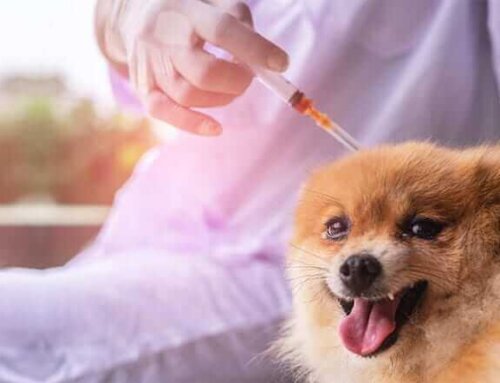Recently I had a canine patient who got “mugged” in her neighborhood by 2 neighbor dogs. She had 3 small holes in her skin on her chest. The owner brought her in the day after the mugging. I sedated her and flushed the wound and started her on antibiotic. She took longer than average to heal and I needed to add another more aggressive antibiotic for her to heal. Looking back, I should have been more aggressive from the start because she is an allergy dog who is on Cyclosporine and Temaril P (drugs that suppress her immune system) to control her allergies. She is doing well, but hindsight is usually best.This got me thinking about diabetics and how they tend to be immunosuppressed relative to ‘normal’ pets.
Diabetic pets may heal more slowly or need extra care compared the typical pet after surgery or injury. Now there isn’t hard evidence in studies that diabetic pets are immunosuppressed, but human diabetics are slow to heal. I think I’ll trust gut instinct and experience to assume diabetic pets are immunosuppressed as well. Such studies would be very difficult to organize! Really, imagine inflicting injuries or infection on diabetic pets and quantitating how fast they heal. First try finding a statistically sufficient number of diabetic pets without other concurrent issues that could muddle a study. Then add in that there ain’t no way folks would subject their darling pets to a controlled study like that! So, if your diabetic pet has an infection or trauma, do follow your veterinarian’s instructions to the letter. Don’t poop out in giving the last few days of antibiotic. Don’t skip the re-check appointments. If things don’t seem quite right, get your pet into the clinic ASAP.
What else might be different about managing a diabetic pet relative to a ‘normal’ pet?
Vomiting is a big issue. Not only do we have a tougher road managing hydration with a diabetic as they tend to pee voluminously when the blood glucose is higher than 300ish. It’s also difficult to decide what dosage of insulin to give if a pet is vomiting. We want to give a bit of insulin if the last glucose check is really high, but not so much that we cause hypoglycemia, particularly as the pet would likely vomit up any food given. It’s a bit of a guessing game.
If a diabetic pet is not eating there is a good chance the pet is nauseous. We have all the usual causes of nausea for ‘normal’ pets (i.e. Fluffy got into the trash, human gave Fluffy some fried chicken, Fluffy ate the latest pet toy, Fluffy has a hairball, etc), but then add in a few particular to diabetics. Lots of diabetics have smoldering pancreatitis. In fact, pancreatitis may have led to the diabetes for many diabetic pets. And to confuse things even further, hyperglycemia over 400 or so can actually cause nausea. Anti-nausea meds and acid blockers are a good thing if your diabetic pet is not eating or vomiting.
Concurrent meds. Some heart medications are thought to alter blood glucose by increasing or decreasing insulin secretion or insulin sensitivity. In general if it is a long-term medication, as most heart medications are, we can simply adjust the insulin dosage and go about our day. Recently one of my clients (one of the most precise and diligent diabetic pet owners I’ve ever come across) showed me his log book after his pet’s internist adjusted the pet’s heart medication dosage. Sure enough, there was a change in his pet’s blood glucose. I think for pets on heart medications it would make good sense to check a blood glucose curve a week after starting or adjusting heart medication dosages. Frankly, it is prudent to run a blood glucose curve a week after starting any long term medication or change in diet fed.
You know I like hearing from our readers. Don’t hesitate to email me at [email protected]
NOTE: Consult your veterinarian first to make sure my recommendations fit your pets special health needs.













Leave A Comment